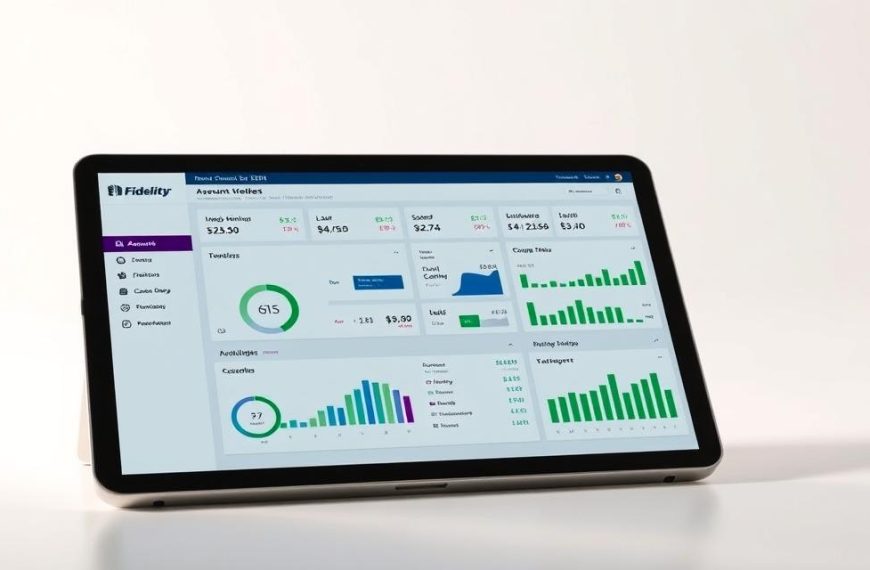Embarking on an investment journey in New Zealand can be a daunting task, especially for those new to the world of finance. With various options available, from KiwiSaver to shares and managed funds, understanding the landscape is crucial.
For many, building wealth is a long-term goal, and with the right strategy, it’s achievable. New Zealanders can now access not only the local market but also the US and Australian share markets with ease, thanks to platforms like Sharesies, which has democratised investing for over half a million users.
As you start your wealth creation journey, it’s essential to understand the options, the costs involved, and how to navigate tax implications. This guide will walk you through the fundamentals of investment in New Zealand, helping you make informed decisions tailored to your financial goals and risk tolerance.
Understanding the New Zealand Investment Landscape
Understanding the investment landscape is crucial for anyone looking to invest in New Zealand. The country offers a diverse range of investment opportunities, catering to different risk profiles and financial goals.
Key Investment Options for Kiwis
New Zealanders have access to various investment vehicles, including KiwiSaver, direct share market investing, managed funds, property, and term deposits. KiwiSaver remains a cornerstone of retirement planning, with employer contributions and government incentives enhancing long-term growth.
The Importance of Starting Your Investment Journey
Starting early, even with small amounts, allows investors to benefit from compound growth over time. This principle significantly impacts long-term portfolio performance. Understanding how different investments work together is essential for creating a balanced approach to wealth building.
| Investment Vehicle | Risk Profile | Potential Returns |
|---|---|---|
| KiwiSaver | Moderate | Long-term growth |
| Share Market | High | Dividends and capital gains |
| Managed Funds | Varies | Diversified returns |
How to Invest Money in NZ: First Steps for Beginners
For those new to investing in New Zealand, getting started can seem daunting, but with a clear understanding of the first steps, beginners can confidently begin their investment journey.
To start investing, one must first establish a solid foundation. This involves several key steps:
- Setting clear financial goals, whether it’s saving for a house deposit, funding education, or building retirement wealth.
- Determining your risk tolerance by assessing your comfort level with market fluctuations.
- Creating a realistic investment budget by analyzing your income, expenses, and existing financial commitments.
Setting Clear Financial Goals
Beginners should define their financial objectives to determine the appropriate investment strategy. For more information on getting started, you can visit The Happy Saver’s investing series.
Determining Your Risk Tolerance
Understanding your personal risk tolerance is crucial. It involves being honest about your comfort level with potential short-term losses.
Creating an Investment Budget
Analyse your financial situation to determine how much you can consistently get started with. Many New Zealand investment platforms offer free sign-up and educational resources to help you begin your journey to a secure future.
KiwiSaver: The Foundation of NZ Investing
Understanding KiwiSaver is crucial for anyone looking to invest in New Zealand, as it provides a robust framework for retirement savings. KiwiSaver serves as the cornerstone of retirement planning for most New Zealanders, offering a structured way to save with contributions from employers and government incentives.
How KiwiSaver Works
KiwiSaver is designed to be a long-term savings plan. Contributions are made through a combination of employee deductions, employer contributions, and government incentives. The scheme is managed by private providers, who invest the contributions on behalf of the member.
Choosing the Right KiwiSaver Fund
Selecting the appropriate KiwiSaver fund is vital. Funds range from conservative to aggressive growth, and the choice should align with your investment horizon and risk tolerance. It’s also important to consider the fees associated with each fund, as they can significantly impact your returns over time.
For more information on investing in New Zealand, you can visit MoneyHub’s investing page, which provides comprehensive insights into various investment options, including KiwiSaver.
Some providers now offer self-selected KiwiSaver options, allowing investors to choose specific companies or ETFs within their KiwiSaver account, providing greater control over ethical considerations and investment preferences.
Regular reviews of your KiwiSaver performance and fund type are recommended, particularly as you approach different life stages or when your financial goals change. This ensures that your KiwiSaver remains aligned with your needs and helps you achieve your long-term financial objectives.
Share Market Investing in New Zealand
For investors in New Zealand, understanding the share market is crucial for making informed investment decisions. The New Zealand share market, or NZX, lists approximately 200 companies, with a strong presence in utilities, property, and agricultural businesses.
NZX vs International Markets
When considering share market investing, it’s essential to weigh the benefits of NZX against international markets. Investors should be aware of currency risks, tax implications, and diversification opportunities available through overseas exchanges.
Individual Shares vs ETFs
Individual shares offer direct ownership in specific companies, while ETFs (Exchange Traded Funds) provide instant diversification, reducing the risk associated with single-company investments.
Investment Platforms for Share Trading
Several platforms, including Sharesies, Hatch, and InvestNow, serve the New Zealand market, each with different fee structures and available markets. For instance, Hatch offers a straightforward pricing model with a 0.5% exchange fee. When choosing a platform, consider the fees and the markets available.
Managed Funds and Other Investment Vehicles
A managed fund is a viable investment option for those who want to diversify their portfolio without directly managing individual assets. ANZ Investment Funds, for instance, are professionally managed by ANZ’s investment management team, providing investors with the benefit of their wealth of knowledge and expertise.
Managed funds offer New Zealand investors access to professional investment management and diversification across multiple assets, including shares, bonds, and listed property, without requiring extensive market knowledge.
Types of Managed Funds Available
Different types of managed funds cater to various investment objectives. These include income funds focused on regular distributions, growth funds targeting capital appreciation, and balanced funds offering a middle ground.
Comparing Fees and Performance
When evaluating managed funds, investors should consider not only the headline performance figures but also the fund’s investment philosophy, risk management approach, and consistency of returns over different market cycles. Fee structures for managed funds typically include management fees, usually ranging from 0.5% to 2% per annum, and potentially performance fees, which can significantly impact long-term returns.
Many managed funds in New Zealand are structured as Portfolio Investment Entities (PIEs), offering tax advantages compared to direct investments for many investors. Platforms like InvestNow and Sharesies have made managed funds more accessible to retail investors, with lower minimum investments than traditionally required when investing directly with fund managers.
Property Investment Considerations
For those looking to invest in New Zealand, property is a significant consideration for long-term financial growth. Property investment remains a cornerstone of wealth creation in New Zealand, with options ranging from direct residential property ownership to commercial property and listed property funds.
Direct Property vs Property Funds
Direct property investment typically requires substantial capital for deposits, usually 30-40% for investment properties, as well as ongoing maintenance costs and management considerations. In contrast, property funds and Real Estate Investment Trusts (REITs) offer exposure to the property market with greater liquidity and lower entry points than direct property, making them accessible through standard investment accounts.
Current Market Conditions
Current New Zealand property market conditions reflect regional variations, regulatory changes affecting investors, and interest rate influences that all impact potential returns. Understanding these dynamics is crucial for making informed investment decisions, particularly when considering the tax implications of property investment, such as recent changes to interest deductibility rules and the bright-line test for shares in investment properties.
Whatever your goals are, be it saving for a house renovation or deposit, or your children’s education fund, an ANZ Investment Fund can help you get there, potentially enhancing your wealth through diversified funds.
Tax Implications for NZ Investors
The tax environment in New Zealand can significantly impact your investment returns. As such, understanding the tax implications of your investments is crucial for making informed decisions.
Understanding PIR Rates
Your Prescribed Investor Rate (PIR) is essential for determining the tax rate applied to your investments. Selecting the correct PIR ensures you’re not overpaying tax or facing an unexpected bill at the end of the financial year.
FIF Tax Rules for Overseas Investments
Foreign Investment Fund (FIF) rules apply to most international investments, including overseas shares and ETFs. Understanding these rules is vital for accurate tax reporting and compliance.
Record-Keeping Requirements
Maintaining thorough investment records is crucial for tax purposes. This includes purchase dates, dividend payments, and foreign tax credits that may be claimed. Some investment platforms simplify this process by providing year-end tax statements.
Key Considerations:
- The New Zealand tax system treats different investment types uniquely, with Portfolio Investment Entities (PIEs) offering tax advantages.
- Staying informed about tax news and changes to investment-related legislation is important for maximizing investment returns.
Conclusion: Building Your Investment Strategy
New Zealand offers a unique investment landscape, and creating a tailored investment strategy is crucial for achieving financial success. To build wealth, it’s essential to combine multiple elements—such as KiwiSaver, direct shares, managed funds, and potentially property—into a cohesive plan that aligns with your personal goals.
Key Considerations for Investors:
- Regularly review your investment portfolio to reassess performance and rebalance assets as needed.
- Introduce children to investing through dedicated kids’ accounts to establish valuable financial habits early.
- Stay informed through investment news and market updates to make timely decisions.
Understanding the power of compound returns is fundamental to investment success. By developing a consistent investment habit and increasing contributions as your financial situation improves, you can achieve your long-term financial objectives in New Zealand’s dynamic market.












